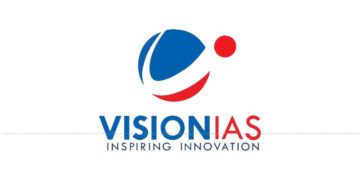Legal work in healthcare entails more than just defending a medical malpractice lawsuit. Healthcare attorneys also deal with regulatory compliance, assisting hospitals and other medical practices to adhere to local health regulations.
For example, the issue of informed consent is complex. While most states provide standardized forms for patients to express their treatment preferences, these are only tools.
Patient Confidentiality
Patient confidentiality is an integral part of the doctor-patient relationship. It ensures that patients feel comfortable sharing private and sensitive information with their doctors, which is necessary for proper diagnosis and treatment. It is the legal and ethical obligation of doctors to maintain confidentiality regarding any information received from patients and not share it with any third party unless the patient has given their consent.
A healthcare attorney can help you avoid accusations of fraud or abuse related to patient privacy. For example, if you disclose a patient’s health information without their permission, the patient may sue for invasion of privacy or medical malpractice.
This confidentiality also applies to patients’ family members. Many patients do not want their doctors to reveal confidential information about them to their family members, creating a dilemma for healthcare providers. However, it is not practical to seek the patient’s explicit consent for using their information for purposes other than individual care.
HIPAA Compliance
HIPAA compliance is mandatory for all healthcare and health insurance entities that transmit data electronically, including providers, health plans, and clearinghouses. It imposes privacy requirements, security standards, and breach notification rules.
Generally speaking, a patient’s personal health information (PHI) must only be used for medical purposes or to contact them about an appointment, and they must give consent before it is used for other reasons. Those who share PHI with others without consent may be subject to civil or criminal penalties.
A healthcare attorney can help clients remain HIPAA compliant by reviewing and drafting policies and procedures for handling private data, negotiating service and business associate agreements, and analyzing complex transactions and business relationships. Additionally, a lawyer can represent clients in audits, investigations, and litigation involving HIPAA-related issues. New laws like the COVID-19 pandemic have caused a surge in patients who visit their physicians via telemedicine. A physician must know how these visits can affect HIPAA guidelines and avoid committing violations that could lead to a fine from the U.S. Department of Health and Human Services Office for Civil Rights.
Licensing Issues
The United States licenses more of its healthcare professionals than other countries. Unlike many European countries, virtually all physicians are licensed, and even entry-level healthcare workers like nursing assistants must be licensed by American state boards. The proliferation of licensing issues contributes significantly to rising healthcare costs.
Licensing issues also affect worker mobility. Several large U.S. metropolitan areas straddle state lines and health workers often face work authorization barriers to signing on with new employers that would not exist elsewhere. Interstate licensing compacts help mitigate these obstacles, but they must catch up to the nationwide work authorizations that Nordic countries have long enjoyed.
The rapid growth of the healthcare industry translates to high demand for lawyers specializing in this law area. When a physician or hospital faces allegations of malpractice, a skilled healthcare lawyer can prevent costly damage to the business and reputation. Healthcare attorneys often advise providers on various other matters, including corporate transactional issues; Medicare and Medicaid reimbursement and payment matters; and 340B drug discount program matters.
Business Disputes
Healthcare entities are businesses at their core, so they may occasionally experience internal business disputes. These disputes can be related to the accounting of expenses and profits, distributions, or majority shareholder abuse, among other issues that may arise within a healthcare-related partnership or professional corporation.
When it comes to important business transactions involving health systems and hospitals, various governmental entities often need to give their approval. These include licensing agencies, state and federal antitrust authorities, government programs, and attorneys general. However, navigating these complexities can be challenging and time-consuming, especially when organizations are also focused on COVID-19-related activities. As a result, there may be delays in completing these transactions.
Medical care providers and facilities also face disputes related to medical billing, insurance companies, credit reporting agencies, or other financial institutions. These disputes can be time-consuming and costly to resolve through traditional litigation. Still, a healthcare attorney could assist in alternative dispute resolution or mediation to help expedite these types of issues. Finally, healthcare fraud is a common problem that can lead to investigations by state and federal law enforcement and qui tam relators. These cases can be very high stakes and present a major risk to healthcare organizations.
Employment Issues
Healthcare professionals and the companies that employ them are subject to rules, regulations, laws, and ethical standards. Successful healthcare ventures leverage the guidance of experienced attorneys to maneuver through the thorny regulatory knots that stall or halt less determined players.
A healthcare lawyer can help a company navigate federal and state antitrust and price-fixing claims, potential concerns regarding physician privilege and peer review, and medical malpractice claims. In addition, a healthcare attorney can assist with issues such as the sale of hospital facilities and the impact on local workforces.
Employment law matters in healthcare are as complex as the industry itself. In response, whistleblower cases soared, and employees who raised safety concerns could face adverse action. In 2022, the conversation about diversity is likely to continue to evolve with an emphasis on unconscious bias and microaggressions. This will require companies to stay on top of the latest laws that address these topics.























